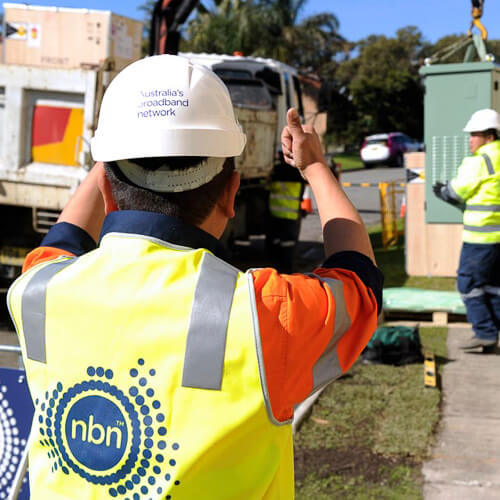NBN Co has nowhere to go on pricing
Australian broadband wholesaler NBN Co is reviewing prices – but won't make structural changes for at least two years, disappointing retail service providers.

NBN Co has given its answer to retail service providers demanding lower wholesale fees: "later, maybe."
The Australian broadband wholesaler has begun its latest two-year review of prices but won't make any structural changes for at least another two years.
In particular, it won't be dumping the contentious connectivity virtual circuit (CVC) charge, although it says it will examine possible alternatives.
Figure 1:  If you build it: NBN FTTN being laid down in Newcastle, Australia.
If you build it: NBN FTTN being laid down in Newcastle, Australia.
(Source: NBN Co)
NBN's chief customer officer, Brad Whitcomb, told the Sydney Morning Herald the state-owned telco was "very open" to alternative models. "We're not ruling anything out at this point," he said.
But in a consultation paper issued Monday, the company stressed "pricing certainty" ahead of any structural change, aiming to reassure its ISP customers over discounts due to expire in April 2022.
It says it will examine alternatives to the CVC and the other key component, the network access fee, known as the AVC.
It is canvassing two options: one that provides retail providers with a slight increase in capacity, the other rebalancing between the CVC and the AVC and also adding more capacity.
Supply and demand
The company argues it has more than halved the average charge per gigabyte in the past five years.
But major broadband retailers are united in their opposition to the CVC, which progressively increases with the volume of data consumed.
Both Telstra CEO Andy Penn and Optus boss Kelly Bayer Rosmarin have described it as unsustainable, especially given that the NBN has set an ARPU target of A$49 ($38.20) by the end of the 2023 financial year, up from the current A$45.
Want to know more about optical? Check out our dedicated optical channel here on Light Reading.
Penn said last week consumers would inevitably face higher prices if NBN continues to lift its prices within the current structure.
"It doesn't matter how much the operators reduce their costs, that's just obviously not going to be sustainable."
The underlying issue is the fragile economics of NBN Co. Its first-half result, announced last week, revealed EBITDA of A$424 million (US$330.5 million) on revenue of just A$2.3 billion ($1.7 billion) and operating cash flow of A$1.2 billion ($932 million).
Against that it has borrowings of A$22.6 billion ($17.5 billion) to cover, including a government loan of A$16.5 billion ($12.8 billion) and private debt of A$4.5 billion ($3.5 billion).
It paid down A$3 billion ($2.3 billion) of its government debt in December, but will need to refinance the outstanding sum by 2024.
All of which suggests that NBN Co has nowhere to go on pricing, no matter how flexible it aspires to be.
Related posts:
— Robert Clark, contributing editor, special to Light Reading
Read more about:
AsiaAbout the Author(s)
You May Also Like




_International_Software_Products.jpeg?width=300&auto=webp&quality=80&disable=upscale)







